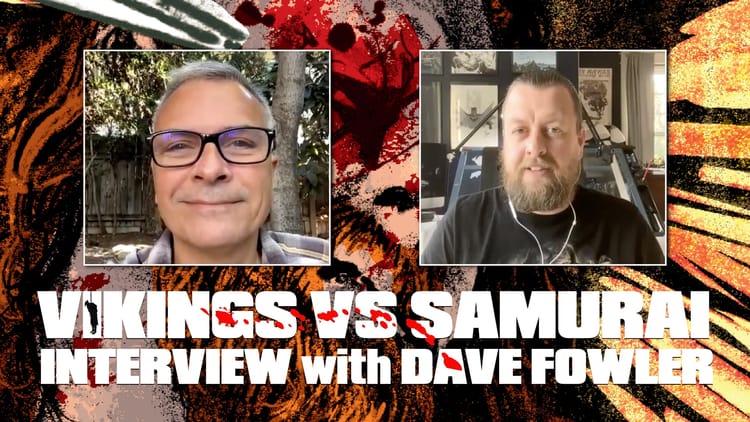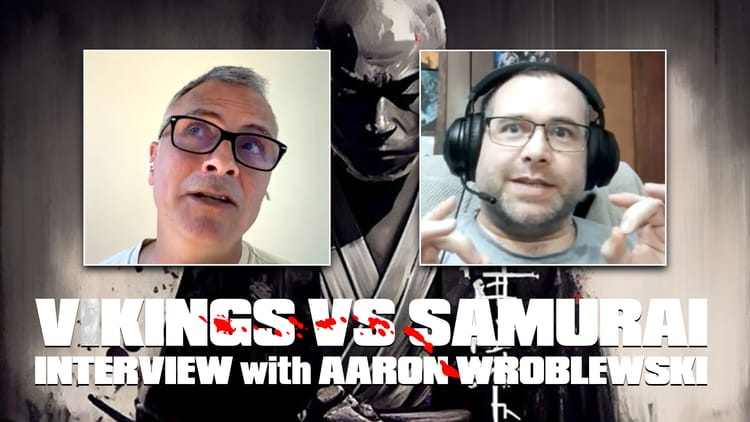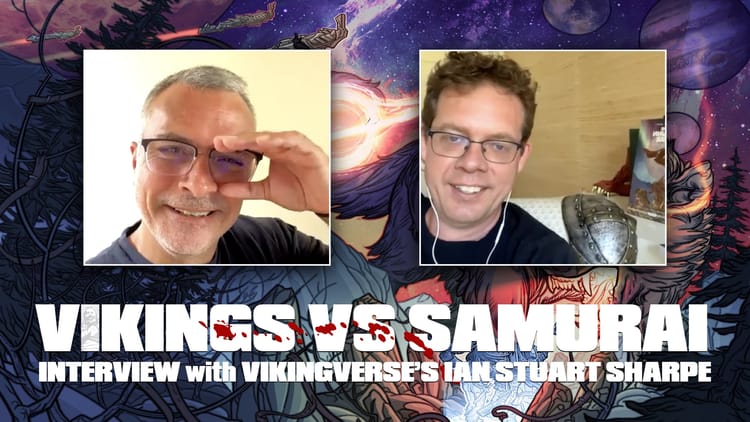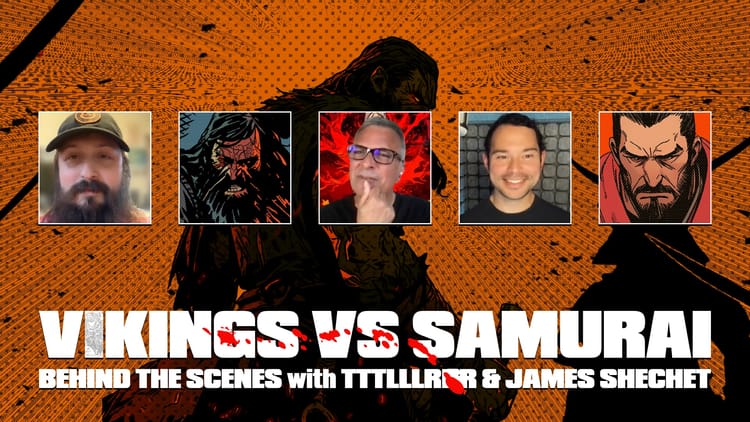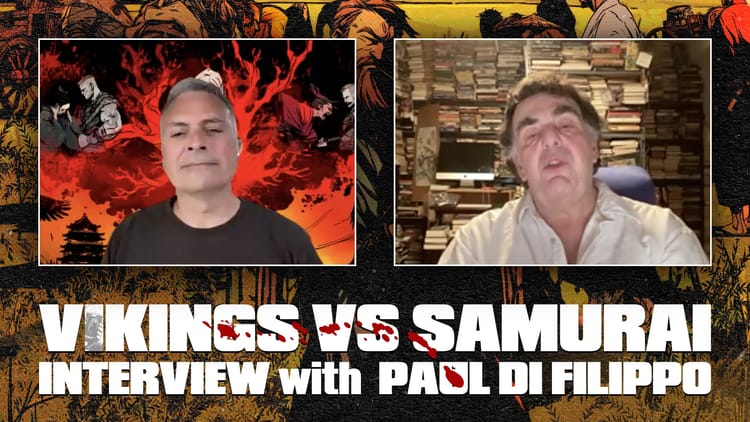Ink and Grit: An Interview with Christian Sager
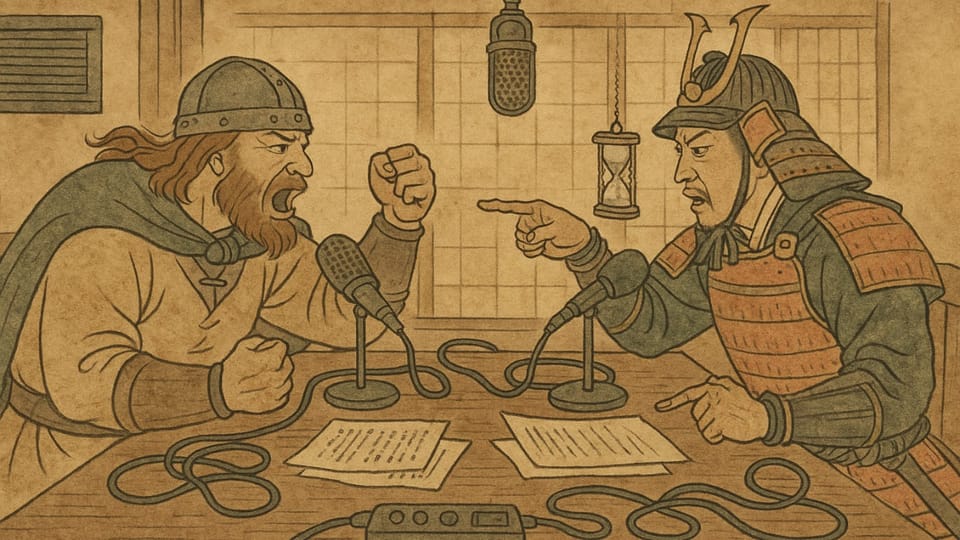
I talked shop with Christian Sager about creating, producing, and promoting webcomics.
Christian and his partner, Charlie Bennett, hosted and produced the Supercontext podcast. Each episode performed a media autopsy, a scalpel dissecting our entertainment intake and its grip on our society. Film, TV, prose, music, and comics were all under their scrutinizing gaze. Their topics were the fruit of intense labor, meticulously researched. But when the mics heated up, it was unscripted riffs and casual banter, a cocktail of academia and barroom chatter. Christian, not one to rest, steers the ship of CORRIDOR magazine.
Here are some insights Christian shared with me about creating and publishing art as a commercial enterprise.
Comic Books and Webcomics
Christian, circa 2008-2010, published a webcomic using ComicsPress, the WordPress plugin, releasing nearly a hundred pages and publishing three and a half issues. Webcomics were very popular then, and he got great engagement, but dollars were scarce. Print sales? Nah, they sold print copies at shows, but the online buffet filled too many bellies, leaving wallets empty.
Monetizing? Pfft, a battlefield. Banner ads bled out in the last decade. It’s more challenging to make money from inserting banner ads on your website than before.
Comic book publishing is a long haul. Christian has some friends who are professional comics creators and have books with companies like Penguin Random House, Tor, or Dark Horse Comics, and they're living hand to mouth. They’re barely making enough money to survive. They’ve made it and have all these publishing deals, and they're looking to find a part-time job to sustain them so they can do comics.
Comic books are hard work. If you’re writing, you’re not just writing. You’re the business manager. You’re the marketer. You’re doing all the administrative stuff. There’s a lot of unpaid labor that goes along with it.
R-rated comic books are a struggle. Stores shun them, conventions scorn them, and printers shiver at tales too bold.
Comixology and Webtoon
Comixology? Once open fields, Amazon’s purchase stagnated the app. Amazon pushed everything away from Comixology to Amazon’s platform, and there are now restrictions on what they accept and what they don’t accept. The Amazon purchase drove away a lot of the platform’s audience. Dollars? Dwindling. Even before Comixology’s purchase, Christian barely made any money and made, like, $10. Maybe.
Webtoon is another online service that publishes and promotes webcomics. It’s been a minute since Christian paid attention to this stuff, but he believes Webtoon is owned by a venture capitalist firm. He’s had a few acquaintances get decent Webtoon deals. Webtoon is problematic, though, because printing art from Webtoon is a challenge. How do you adapt a vertical format to the printed page? And the adaptation can create awkward beats.
Promotion
Christian shared that the audience and social hustles are crucial, but oh, the platform hoops. And social media is falling apart. Twitter is no longer the powerhouse it was. Facebook has a much older-skewing audience. Instagram is great, but you can’t add links to posts, so you’d have to set up LinkTree in your profile. Those are all possibilities, but they aren’t going to generate as much traction as you’d hope for.
It would be best to build an audience, and you’ve got to be active on social media. And just blasting it out constantly to get people’s attention and build that audience. And really, the other thing that is worth doing is going to places where an audience might already exist. And that depends on your webcomic’s genre and what kind of stories you’re telling.
San Diego Comi-Con is the promised land for creators and publishers. TV scouts are about looking for new material.
Apple, Amazon, and Netflix
Big leagues? Apple, Amazon, Netflix. Seeking gold, creators hustle, sweat pitch decks. Acquisitions editors are looking for IP content they can turn into something else, but that’s tricky and usually requires working with a publisher. Or go lone ranger, emptying wallets over prints, shows, and the convention gauntlet. Break-even? Not likely.
Books
The Business of Independent Comic Book Publishing by Gamal Hennessy
If you’re working with artists, and you want to have like an iron type contract, he’s the guy that I recommend for legal stuff. His book gives you the basics of self publishing and how the business works and how to accomplish your goals.
People’s Guide to Publishing: Building a Successful, Sustainable, Meaningful Book Business from the Ground Up by Joe Biel
This book is a bible for creators. It breaks down for you the entire business, from top to bottom of books selling not just comics, and gives you an inside look into what you need to do in order to break even or break the charts, especially with Amazon.
Tools of the Trade
Pen and paper for tales, Google Docs for building an outline and writing.
Plottr? Uncharted waters, but it Plottr lets you easily arrange your scenes, plots, and character arcs.
Indie Comics and Indie RPGs
Indie comics? They’ve lost some of their luster. But indie RPGs like Mork Borg fan the flames of inspiration with crazy ideas, good storytelling, some amazing design.
Lesson Learned
- Avoid the rat race for pitch deals or upward networking.
- Start from the ground up, network laterally, and build genuine connections within the community.
- Making friends at the same level and rising together proves more fruitful than chasing editors or constant pitching.
- Focus on building a reputation and a core audience of around 1,000 supporters before diving into larger endeavors.
- Monetization can be challenging, and dedication may not always yield immediate financial or recognition returns.
Read my meeting notes with Christopher Baldwin, webcomic creator.

